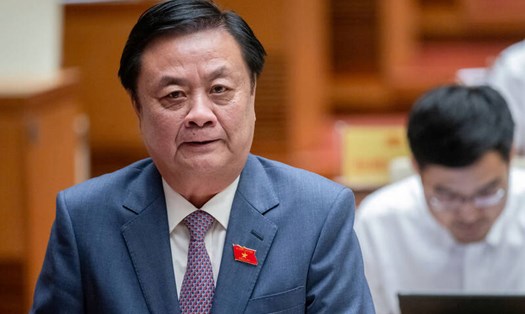With the situation of linking rice production and business in the Mekong Delta, according to calculations by the Department of Crop Production, in the Mekong Delta, each hectare of rice participating in large fields can reduce production costs by 10 to 15% and the output value can increase by 20 to 25%, earning an additional profit of 2.2 to 7.5 million VND/ha compared to conventional farming.
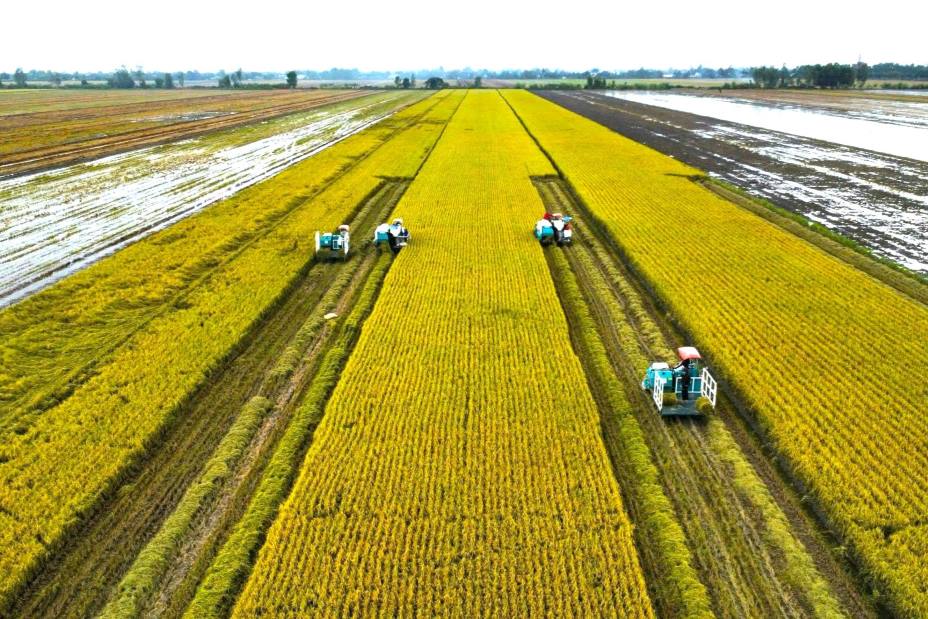
The reason for the reduction in rice production costs is that farmers who produce according to the large-scale field model have promoted the application of sustainable farming processes, reducing the amount of fertilizers and pesticides while also increasing the quality of rice, increasing the value of rice and selling price. In particular, farmers who have signed contracts with enterprises to ensure production are assured without worrying about product output being sluggish and losing value.
The rice growing area of the entire Mekong Delta is 3.89 ha/year, about 1.7 million ha of rice growing land, accounting for 53.7% of the country's rice growing area; rice production in the region in recent years has been stable from 24 million tons/year to 25 million tons/year.
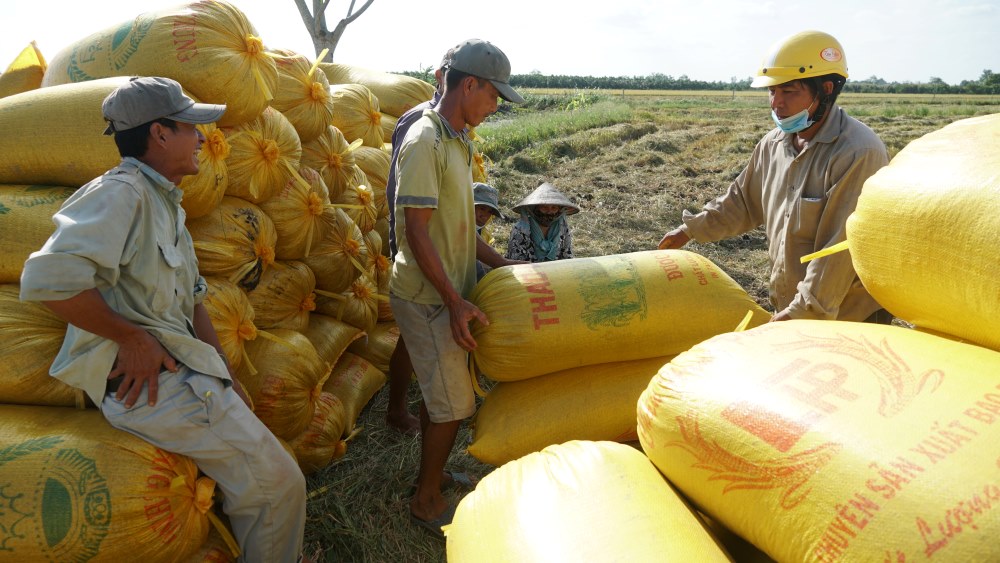
There are three main rice consumption channels in the Mekong Delta: farmers sell rice directly to processing/exporting enterprises (accounting for 12.1% of total rice output); farmers sell rice through cooperatives (accounting for 37.5% of total rice output) to redistribute to processing/exporting enterprises or through traders; farmers sell through traders (accounting for 50.4% of total rice output) and redistribute to other subjects.
Although the rice consumption channel, in which farmers supply rice to enterprises through cooperatives, tends to increase, it has not really created a close, long-term and highly effective connection, and at the same time, the area with production - consumption linkage between farmers/cooperatives and enterprises in the Mekong Delta is still very low.
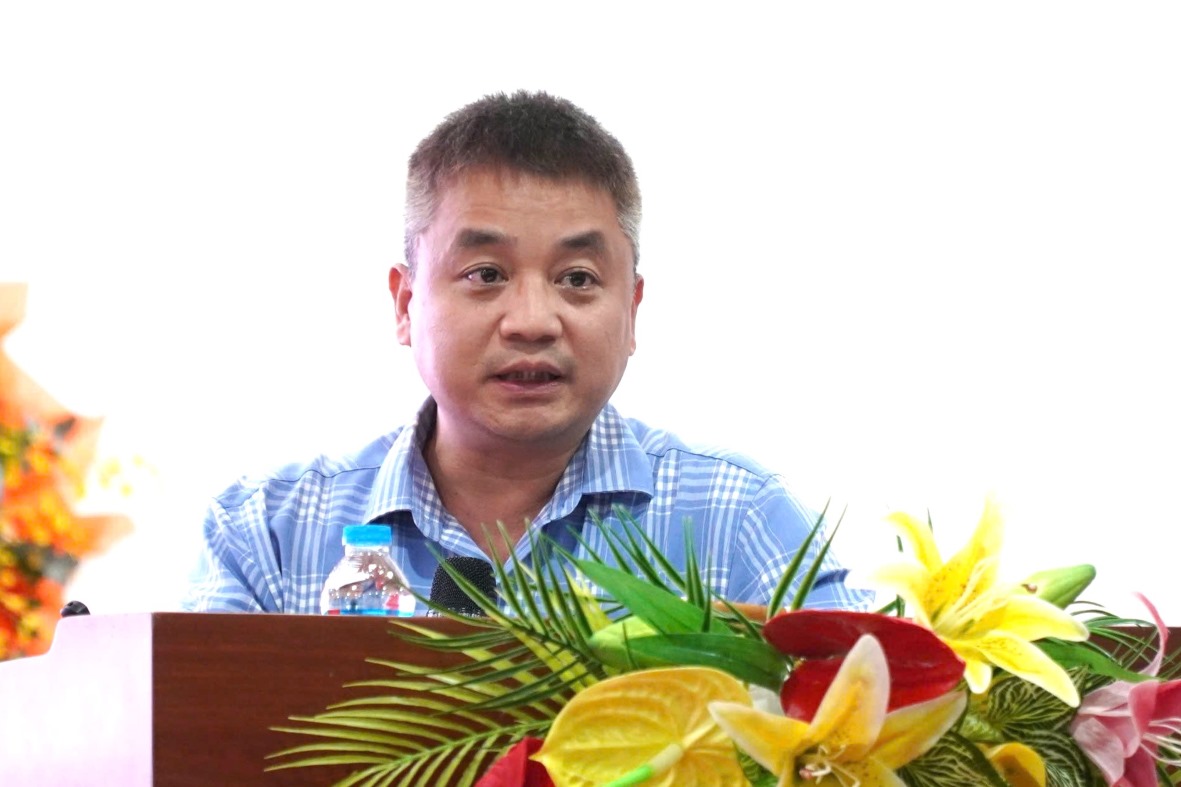
Mr. Nguyen Tien Dinh - Deputy Head of the Cooperative Economic Division, Department of Cooperative Economic and Rural Development (Ministry of Agriculture and Rural Development) said that currently, the whole Mekong Delta region has about 180 enterprises qualified to do rice export business and participating in rice purchasing. Of which, about 50 enterprises are associated with rice purchasing; the associated enterprises purchase about 26% of the total rice growing area in the whole region. The remaining about 130 enterprises purchase rice freely, without purchasing links.
According to the Department of Economic Cooperation and Rural Development, there are still difficulties and limitations in the rice linkage in the Mekong Delta region such as: Unstable market for enterprises; Enterprises and cooperatives lack capital; Difficulties from farmers (compliance with procedures; contracts; sales habits; small production scale); Difficulties from enterprises to farmers (no advance investment, no purchase of products according to commitment); Limited capacity of cooperatives; Lack of trust between enterprises - farmers - cooperatives (incomplete contracts, lack of risk sharing, etc.)
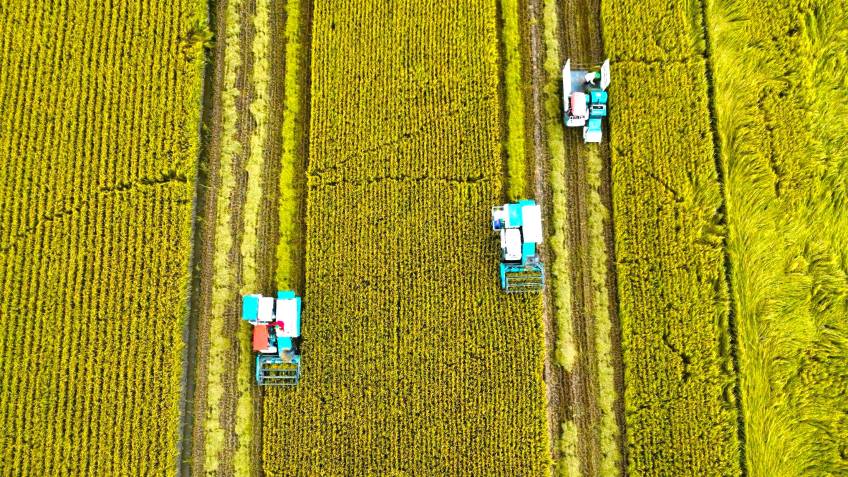
Mr. Ngo Minh Long - Director of the Department of Agriculture and Rural Development of Hau Giang province, acknowledged that the linkage in production is still loose, and there have even been many lawsuits in the linkage between enterprises and cooperatives. Meanwhile, the management model is still uncertain.
Mr. Ngo Minh Long said that the number of enterprises investing in rice in the area is still limited, while the province mainly has enterprises from other provinces registering to purchase rice.
In terms of policy, the province has established the Hau Giang Rice Cooperative Union, which acts as a connecting link. In addition, the province has also invested in upgrading infrastructure and developing convenient transportation to attract more businesses to the province to purchase.
Regarding the orientation to improve the linkage of rice value chains in the Mekong Delta, the Department of Economic Cooperation and Rural Development added that the Ministry of Agriculture and Rural Development is currently focusing on directing many projects and strategies...











